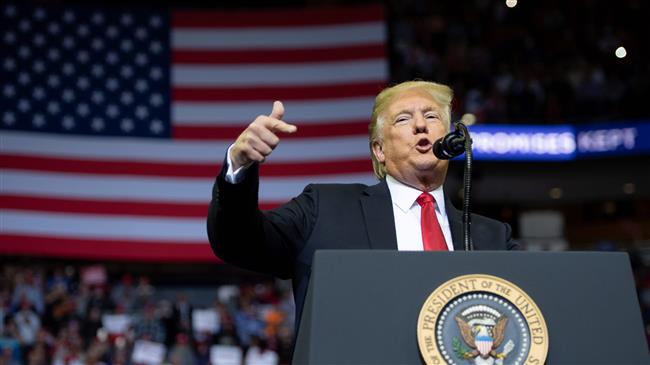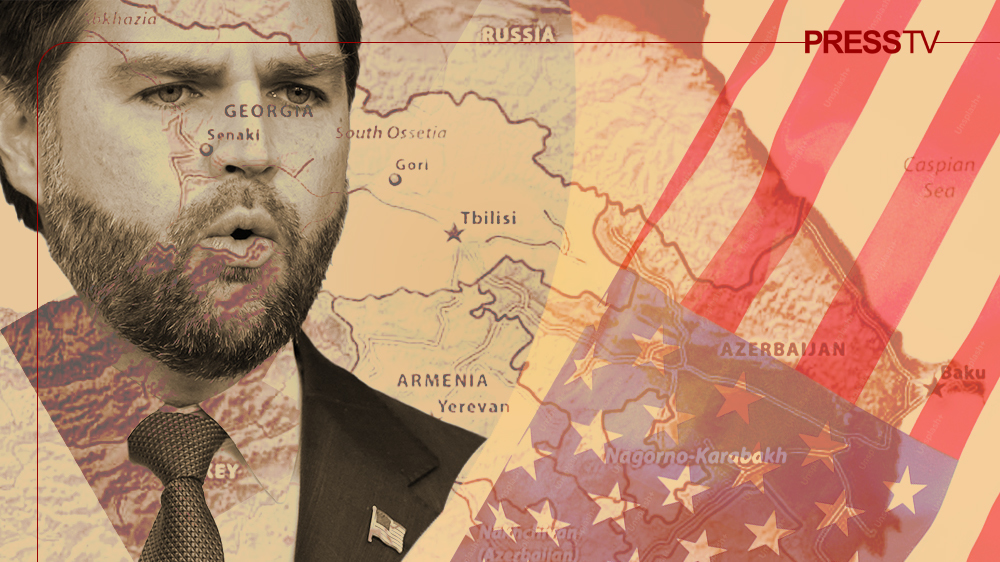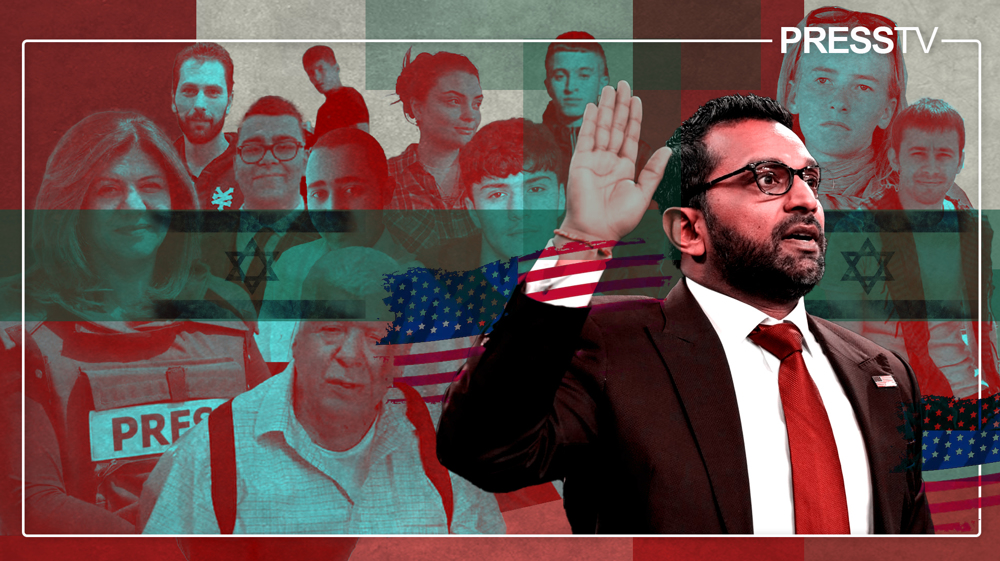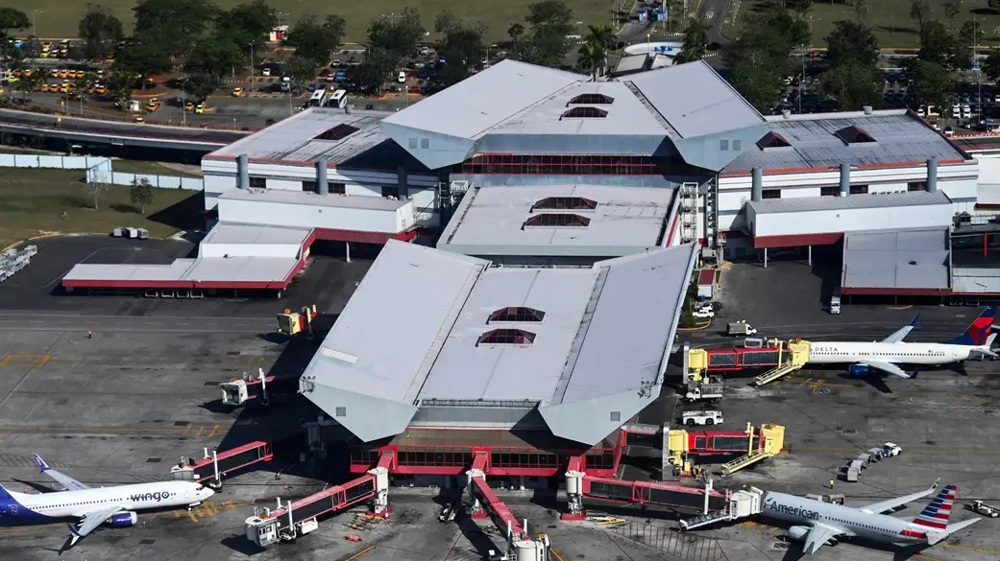US ready to bolster nuclear arsenal: Trump
President Donald Trump has said the United States is ready to bolster its nuclear arsenal after announcing it is ditching a Cold War-era nuclear weapons agreement with Russia.
Trump on Saturday said that he was planning to abandon the decades-old Intermediate-range Nuclear Forces Treaty (INF), over claims that Moscow violated it. The key arms control treaty was signed by President Ronald Reagan and Mikhail Gorbachev, the last Soviet leader, in 1986.
Trump told reporters in Washington on Monday that Russia had "not adhered to the spirit of that agreement or to the agreement itself."
"Until people come to their senses, we will build it up," he said, referring to the US stockpile of nuclear weapons. "This should have been done years ago."
"It's a threat to whoever you want. And it includes China. And it includes Russia," he continued. "And it includes anybody else who wants to play that game. You can't do that. You can't play that game."
"Until they get smart, there's going to be nobody that's going to be even close to us,” the US president said.
The 1986 treaty banned all land-based missiles with ranges of 500 to 5,500 kilometers (310 to 3,420 miles) and included missiles carrying both nuclear and conventional warheads. The original ban between Moscow and Washington led to the elimination of 2,692 missiles.
The US claims that Russia’s newly-deployed Novator 9M729 cruise missiles fall in the banned category and pose a direct threat to members of the NATO military alliance. Russia finished testing the missile in 2014.
US Ambassador to NATO Kay Bailey Hutchison stirred tension earlier this month by warning that Washington would “take out” the missiles if necessary.
The issue is expected to overshadow US National Security Adviser John Bolton’s trip to Moscow.
Bolton, who is believed to have persuaded Trump to quit the INF, arrived in Moscow on Monday. He met with Russia's Foreign Minister Sergey Lavrov.
Ahead of Bolton's arrival, Lavrov said Russia will be forced to take action if the United States begins developing new missiles after abandoning the treaty.
"Any action will face a reaction because strategic stability could be ensured only on the parity basis. Such parity will be maintained under any circumstances. We are responsible for global stability and expect that the US won't renounce their share of responsibility as well," Lavrov told reporters.
The Pentagon has announced it wants to replace or modernize its nuclear attack force, which is expected to reach the end of its useful life during the next decade. Experts estimate the program will cost $1 trillion over the next 30 years.
The modernization plan has come under criticism from opponents of nuclearization, who warn it may prompt a new arms race with Russia and China.
The US currently has an arsenal of about 7,000 nuclear warheads, second only to Russia, which has a few hundred more.
Washington and Moscow finalized New START (Strategic Arms Reduction Treaty) five years ago. The nuclear arms reduction treaty was signed in 2010. The treaty entered into force in 2011 and is expected to last at least until 2021.
Nearly 26 years after the end of the Cold War between the United States and the former Soviet Union, Washington and Moscow reportedly still have some 2,000 atomic weapons ready to fly at a moment’s notice to destroy each other.
Araghchi briefs foreign ministers of Turkey, Egypt and S. Arabia on US talks
JD Vance’s Caucasus trip deepens concerns over sovereignty, security and US meddling
VIDEO | Press TV's news headlines
Thousands rally in Australia against Israeli president's visit as police use pepper spray
Child among four killed as Israel attacks southern Lebanon in ceasefire breach
Russia vows ‘all possible assistance’ to Cuba as US squeezes oil supplies
Hezbollah leader: Israel‑US aggression is Lebanon’s main challenge
Muslim nations condemn Israel’s new West Bank settlement laws











 This makes it easy to access the Press TV website
This makes it easy to access the Press TV website